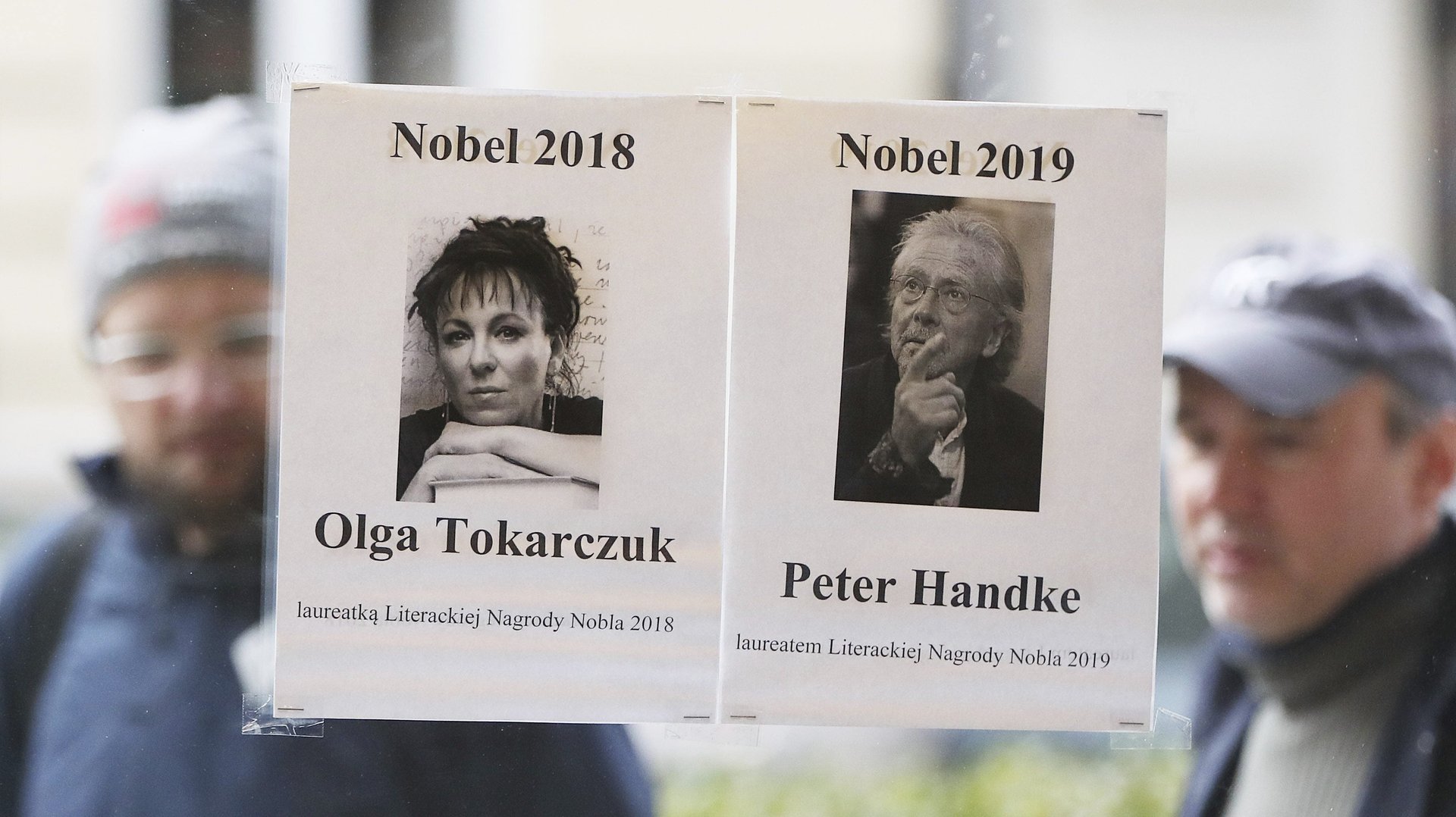The literature Nobel briefly fixed course, before falling right back into its old ways
After last year’s literature Nobel was cancelled amid a sexual assault scandal, the prize has returned with two winners. While the first new laureate will please those hoping for a more cosmopolitan Nobel, the second will give them cause for concern.


After last year’s literature Nobel was cancelled amid a sexual assault scandal, the prize has returned with two winners. While the first new laureate will please those hoping for a more cosmopolitan Nobel, the second will give them cause for concern.
The 2018 award was postponed after Jean-Claude Arnault, the husband of Swedish Academy member Katarina Frostenson, was accused, and later convicted, of rape. Frostenson and several other academy members were forced to resign. The controversy opened a dam of criticism against the Academy, the body that chooses the winners.
Its selection process was too opaque, critics said. Its members, who are elected for life, were holding their posts for too long. And its laureates were consistently white European men. Anders Olsson, who was elected after the controversy—and is currently the chair of the committee that awards the prize—recently admitted that the academy needs to become more transparent and diverse.
So the pressure was on this year. In some ways, the academy showed improvement. It offered the belated 2018 literature Nobel to Olga Tokarczuk, an activist in her native Poland and a critic of its current far-right administration.
Flights, her most popular book in English, is a meditation on travel and migration that portrays “the crossing of boundaries as a form of life,” in the words of the judges. Drive Your Plow Over the Bones of the Dead, named after a poem by William Blake, is a humanist tale that tackles environmental questions.
But much of the goodwill earned by the selection of Tokarczuk was diminished by the winner for 2019. The academy awarded the prize to Peter Handke, a writer from Austria infamous for his controversial political views. He’s been criticized for supporting the Serbs during the Yugoslav wars in the 1990s, and for speaking sympathetically at the funeral of former Serb leader Slobodan Milošević, who was charged with genocide.
Handke is also yet another white European man to win the award, while Tokarczuk is just the 15th woman among more than 110 laureates. And it’s not as though the academy is lacking more diverse options. Favorites for this year’s award included Canadian writer Margaret Atwood, Japanese writer Haruki Murakami, and Guadeloupean writer Maryse Condé.
The literature Nobel is at a crossroads, split between the Tokarczuk and the Handke paths. This year’s award showed the academy trying to walk both ways, but next year, when it once again will award only one writer, it will have to choose just one way forward.
You can read all of Quartz’s coverage of the 2019 Nobel Prizes here.